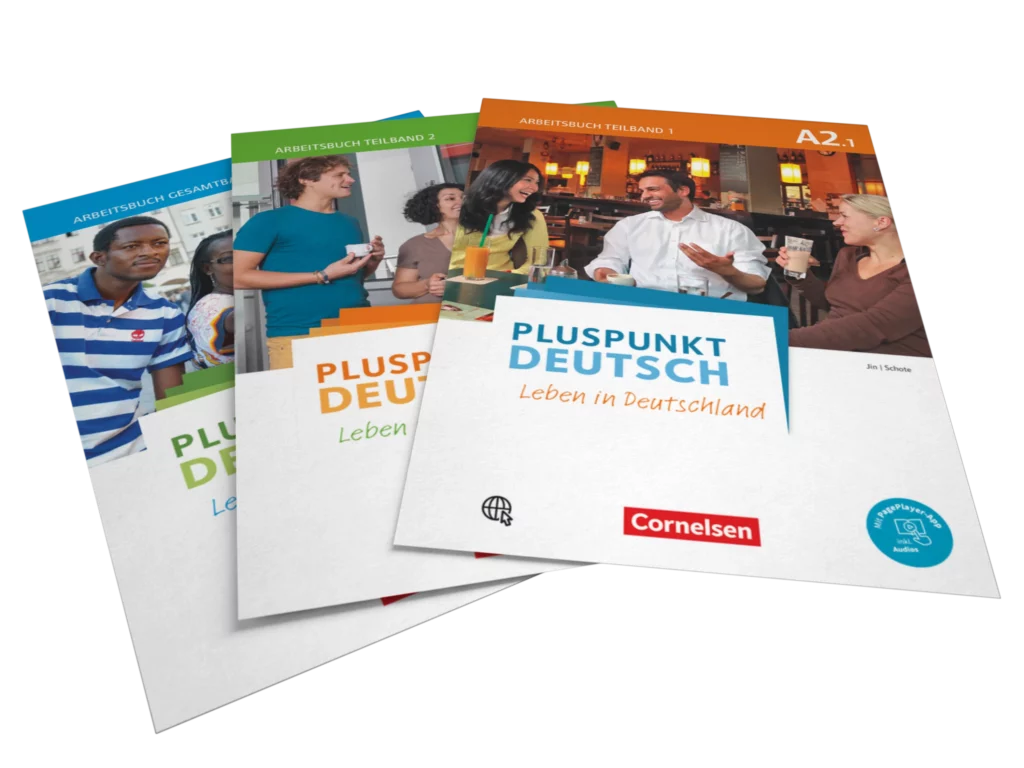A German language course from A1/A2/B1 covers a wide range of topics and skills, building systematically to expand language proficiency. Here is an overview of the learning content for each level:
A1 Level (Beginner)
At the beginning, course participants learn the basics of communication, such as introducing themselves and others. Greetings like „Guten Morgen!“ (Good morning!), „Guten Tag!“ (Good day!), etc., and simple polite phrases are covered. In the next lesson, we learn to talk about personal information like our name, address, phone number, or nationality. We learn the names of family members and professions. Then, we learn everyday vocabulary, numbers, times, days of the week, months, and colors, as well as words for clothing and food.
Basic grammar includes the present tense, regular and irregular verbs, articles (definite/indefinite), pronouns, and simple sentences (main clauses). We learn to write short notes and postcards. We can understand simple announcements and public address messages and participate in basic conversations.
A2 Level (Basic Knowledge)
After 300 hours of lessons, we expand communication with conversations about everyday topics such as shopping, food, health, or giving directions. We learn the past tense forms Perfekt and Präteritum for frequently used verbs and subordinate clauses with „weil“ (because) and „dass“ (that), as well as modal verbs (können, müssen, dürfen) and adjective declension.
We expand everyday vocabulary on topics like travel, transportation, hobbies, and leisure activities. In written communication, we learn to write simple letters and emails. We read simple texts, advertisements, or user manuals.
B1 Level (Intermediate)
After 600 hours of lessons, we learn more complex forms of communication, such as discussions about personal interests, experiences, and plans, or how to express and justify one’s opinion. The expanded grammar includes the Konjunktiv II (for wishes and polite requests), relative clauses, and the passive voice. For professional contexts, we practice job interviews, workplace situations, workflows, and business correspondence. Specific vocabulary on topics such as the environment, media, politics, and education is also important. We read newspaper articles and reports and write formal letters. We listen to radio broadcasts, news, and interviews, and learn to understand movies and TV series with a simple plot.
This content allows you to systematically develop your German language skills and apply them confidently in various everyday situations.


